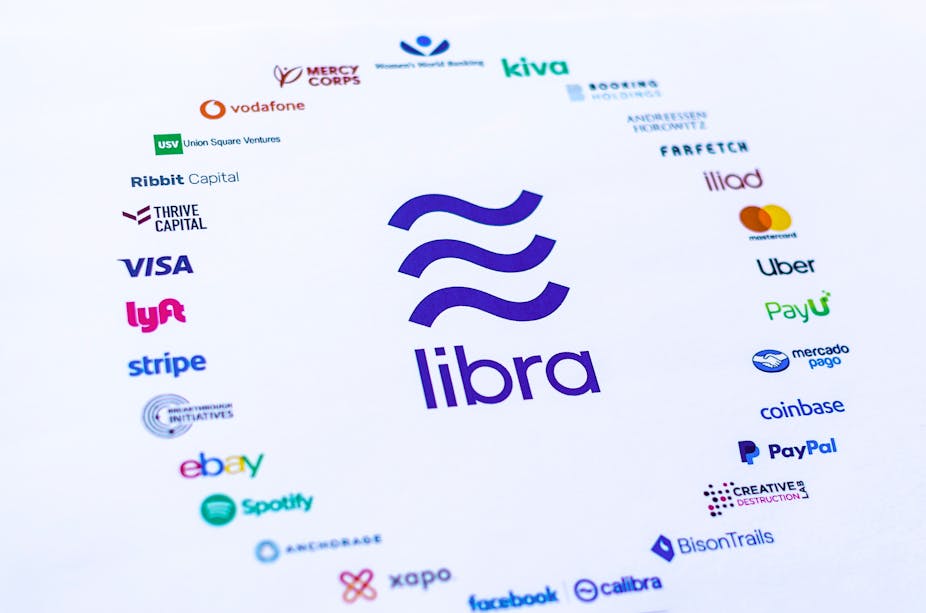By: Trevor Vonu

Starting in May of 2019, Facebook began to develop its cryptocurrency, known as Libra.[1] The social media giant hopes to use its worldwide reach to help Libra revolutionize the exchange of currency in the modern world.[2] Libra aims to allow consumers, especially those seeking an alternative to traditional currency and banking, to buy products or simply exchange money with virtually zero fees.[3] By eliminating transaction fees, a common staple of credit card companies, Libra could have a profound impact on the world’s paperless exchange of money.[4] Unlike its competitors, namely Bitcoin and Ethereum, Libra aims to maintain a stable price point, providing merchants and consumers comfort in using Libra as a regular method of exchange.[5] Another problem plaguing cryptocurrency pioneers, is the issue of widespread acceptance; most merchants only accept traditional forms of currency and lack the means and/or desire to allow payment via cryptocurrency.[6] This issue has proven to be quite challenging to current cryptocurrencies, however, Libra has the potential to become integrated throughout American and foreign economies.[7] Facebook already has a relationship with millions of advertisers and businesses.[8] With its foot already in the door, Facebook may be able to provide Libra the push it needs to become a common form of exchange among merchants.
However, it did not take long for lawmakers to push back against Facebook’s launch of Libra. Throughout the latter half of 2019, Facebook has been hit with a seemingly endless barrage of questions and concerns surrounding Libra.[9] Uneasiness concerning Facebook’s entrance into the financial arena should not come as a surprise, considering Facebook’s past struggles with user privacy and protection of personal information.[10] Lawmaker’s and regulatory concerns, however, stem far beyond the privacy interests of its users.[11] The U.S. Treasury Department voiced its concern regarding Libra’s potential to be misused for money laundering and financing criminal activity.[12] Based on the government’s concerns, it seems evident that the current regulatory infrastructure is simply not prepared for the shock that Libra could bring to the current financial system.[13] Further, widespread incorporation of Libra could drastically hamper the Federal Reserve’s ability to moderate United States financial policy.[14]
Expecting an avalanche of regulation and red tape, several of Libra’s partners, including Visa, Mastercard, and PayPal have already abandoned the project, at least for now.[15] Due to the government’s reluctance to accept Libra’s entrance into the finance arena, Facebook faces an uphill climb in its mission to launch its cryptocurrency brand.[16] However, Facebook shows no signs of abandoning the project.[17] Consequently, the U.S. government will likely do whatever it can to maintain regulatory control over Libra.[18]
Stemming from the controversy sparked by Facebook’s announcement of Libra, the House of Representatives held a hearing primarily purposed to determine how Libra would affect the current financial system.[19] Some of the concerns voiced in the hearing include financial regulations, consumer protection, and whether Libra coins should be regulated as securities.[20] Perhaps most notably, the lawmakers discussed Libra’s potential impact on the U.S. financial system, as well as public policy concerns.[21] Evidently, Libra is currently seen as a serious threat to the Federal Reserve’s ability to regulate currency.[22] As such, Facebook and Libra will likely be subject to continued governmental oversight as lawmakers work to ensure that the government will be able to maintain a degree of control of Libra’s impact on the American financial system.[23] Consequently, at the time of its launch, Libra will likely be less innovative than initially expected.[24] That said, it will certainly be interesting to see whether Facebook unveils Libra as it was originally designed.
image source: https://images.theconversation.com/files/286737/original/file-20190802-117871-qda2ij.jpg?ixlib=rb-1.1.0&q=45&auto=format&w=926&fit=clip
[1] AnnaMaria Andriotis, Peter Rudegeair, & Liz Hoffman, Wallstreet Journal (Oct. 16, 2019, 12:19 PM), https://www.wsj.com/articles/facebook-wanted-to-create-a-new-currency-it-wasnt-ready-for-the-backlash-11571242795?mod=searchresults&page=1&pos=11.
[2] Id.
[3] Josh Constine, Tech Crunch (June 18, 2019, 5:01 AM), https://techcrunch.com/2019/06/18/facebook-libra/.
[4] See Id; Outside Perspectives on the Collection of Beneficial Ownership Information: Hearing Before the S. Comm. on Banking, Housing, and Urban Affairs, 116th Cong. 15 (2019) (statement of Sen. Jack Reed, Chairman, S. Comm on Banking, Housing, and Urban Affairs).
[5] Jonathan L. Marcus, Recent Cryptocurrency Regulatory Developments, 38 Banking & Fin. Services Pol’y Rep. 1, 7 (2019).
[6] Constine, supra note 3.
[7] Id.
[8] Id.
[9] See supra note 3, at 14-15.
[10] Jonathon Shaw, The Privacy Implications of Facebook’s Surreptitious and Exploitive Utilization of Facial Recognition Technology, 31 Temp. J. Sci. Tech. & Envtl. L. 149, 150 (2012).
[11] Androitis, supra note 1.
[12] Examining Facebook’s Proposed Cryptocurrency and its Impact on Consumers, Investors, and the American Financial System: Hearing Before the H. Comm. on Fin. Serv., 116th Cong. (2019).
[13] See Outside Perspectives on the Collection of Beneficial Ownership Information: Hearing Before the S. Comm. on Banking, Housing, and Urban Affairs, 116th Cong. 15 (2019) (statement of Sen. Jack Reed, Chairman, S. Comm on Banking, Housing, and Urban Affairs).
[14] See Andriotis, supra note 1.
[15] Id.
[16] See hearings, supra note 12.
[17] See Andriotis, supra note 1.
[18] See hearings, supra note 13, at 15.
[19] See hearings, supra note 12.
[20] Id.
[21] Id.
[22] See id.
[23] See Marcus, supra note 5, at 8.
[24] Andriotis, supra note 1.
